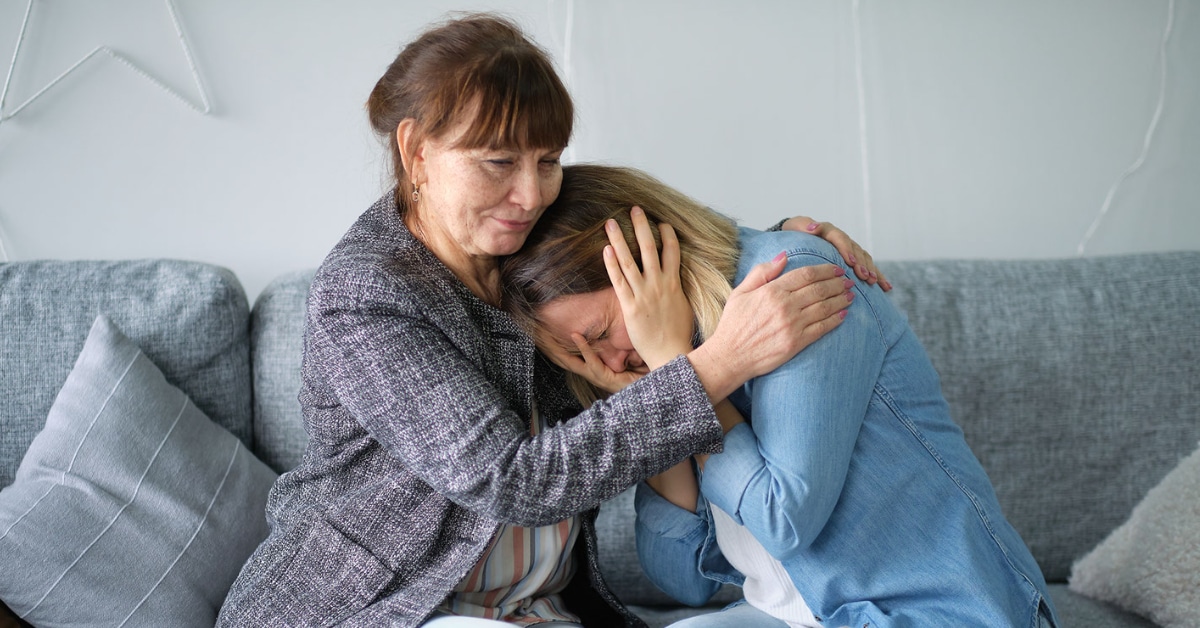PTSD Counseling Online|Complex PTSD Therapist in California
What is PTSD?
Post Traumatic Stress Disorder (PTSD), is a mental health condition that can develop after you experience or witness a traumatic event. It is a form of anxiety. Common symptoms often include flashbacks, nightmares, severe anxiety, and uncontrollable thoughts about your traumatic experience. If symptoms from trauma last more than a few months, you may have PTSD.
We often think of this condition as something veterans suffer, but anyone can have PTSD. Perhaps you have been in a bad accident or stopped to help at the scene of an accident. You may have been the victim of rape, an assault, or human trafficking. You may have witnessed a shooting or are a survivor of a traumatic event. You may have experienced spousal abuse or another kind of domestic violence. You may be a first responder or a healthcare provider caring for covid patients.
When you have Post Traumatic Stress Disorder, your memories and experiences filter into your everyday life. They become intrusive and uncontrollable and impact your behavior. It can seem like you're stuck in a trauma loop. The impact of PTSD makes it difficult for you to carry out your daily responsibilities and live a healthy and fulfilling life.
When horrible things happen, it can take a while to get over the shock, trauma, and pain. Post Traumatic Stress Disorder can make you feel stuck in a perpetual state of danger, reliving painful memories. PTSD can make it difficult to function normally in daily life and can be very distressing. While the cause of Post Traumatic Stress Disorder is not fully understood, we believe it results from a combination of environmental and genetic factors. Your trauma experience is unique to you. If others were also present at the event, they might have a completely different response.
The first line of recovery is psychotherapy. You can get the support you need and find out how to resolve trauma that fits your personality and lifestyle. Some people find medication helpful to assist in Post Traumatic Stress Disorder recovery. With support, you can learn to live without your past showing up in the present. You can feel safe again and get on with your life. Online PTSD counseling can speed up your recovery.
Causes of Post Traumatic Stress Disorder
Your reaction to trauma can cause Post Traumatic Stress Disorder. Several events can cause PTSD, including combat exposure, sexual assault, losing a loved one, and natural disasters.
During a stressful or life-threatening experience, your nervous system sounds the alarm and switches on your fight-or-flight response. It is a survival mechanism that prepares you to fight or run away to stay safe from danger. Your heart increases. You may feel it pounding. Your breathing quickens. Your blood pressure increases blood flow and transports oxygen to the organs needed to survive. All these physical changes help your body get ready to take action. Once the danger passes, your body returns to its normal resting state.
Post Traumatic Stress Disorder occurs when you experience excessive stress and anxiety when the dangerous situation is over. The fight or flight state continues past its useful time frame. The danger is gone, but your nervous system gets stuck in the ready-for-danger state. You find it difficult to return to a relaxed, calm state. The event stays at the forefront of your mind. Online PTSD counseling can help you move your PTSD memories so they don't continue to play in a continuous loop in your head.
Symptoms of PTSD can include flashbacks, intrusive thoughts, nightmares, and can cause intense fear, helplessness, hypervigilance, and horror. You might have flashbacks, nightmares, severe anxiety, depression, and uncontrollable thoughts about the traumatic event. You may also experience feelings of isolation and guilt and have trouble maintaining healthy relationships or returning to work.
Although there is no cure, therapy, and medication can help you manage your symptoms. PTSD therapy online involves helping your nervous system let go and relax so you can heal and participate in daily activities.
Symptoms of PTSD
Post-traumatic stress disorder can cause several symptoms that are disruptive to daily life. Symptoms of PTSD may include disturbing thoughts, memories, or dreams related to the precipitating event, feeling emotionally numb; avoiding places, activities, or people that remind you of the event; feeling angry, irritable, or aggressive; and having problems sleeping or concentrating. Many people with Post Traumatic Stress Disorder also experience intense feelings of fear, guilt, or shame.
You can be freed from these disturbing symptoms. PTSD therapy online can help you feel like yourself again so you can enjoy your life without past trauma interfering.
Some symptoms of Post Traumatic Stress Disorder are:
Repetitive thoughts about the event
Flashbacks
Replay of memories
Intrusive, unwanted thoughts
Avoiding certain people or places
Making an effort to suppress feelings
Avoid talking about the event
Negative thoughts and beliefs about yourself
Negative assumptions about others
Pervasive anger
Decreased interest in activities
Persistent shame, guilt, or fear
Survivor's guilt
Hypervigilance
Avoidance of reminders
Sense of danger
Numbness
Irritability
Stomach aches
Difficulty falling or staying asleep
You can learn to manage your symptoms with online PTSD counseling and improve your quality of life.
Benefits of online therapy for PTSD
Post Traumatic Stress Disorder can make it difficult to function day-to-day and can lead to long-term mental health issues if left untreated. Fortunately, there are many ways to treat Post Traumatic Stress Disorder. You can get back to your life with online PTSD counseling. Studies show virtual therapy via the internet is effective and can provide many benefits over traditional in-person therapy. Some of these benefits include:
Increased access
Teletherapy is an effective option if it is difficult to attend traditional therapy sessions because of medical constraints or travel issues. You can access your therapy sessions from the privacy and comfort of your home.
Better adherence and attendance
Counseling delivered through telehealth can make it easier to stick with to your therapy regimen until you feel better.
Avoiding stigma
Many people are hesitant to attend traditional therapy sessions due to the stigma associated with mental illness. By providing a virtual environment, teletherapy can help you maintain a sense of anonymity while getting the help you need.
Better outcomes
Teletherapy can help you achieve your goals. The privacy of a virtual environment provides a safe environment to be yourself and work through whatever keeps you from living the life you want.
PTSD counseling online can help you make sense of your trauma so your central nervous system can calm down.
What's the difference between PTSD and trauma?
Both are associated with mental and emotional distress, but there is a big difference between the two. Post Traumatic Stress Disorder is a diagnosable mental health condition that can develop after exposure to any traumatic event, such as combat, sexual assault, or a natural disaster. On the other hand, trauma alone does not meet the criteria for a mental health condition. Trauma is an emotional response to an intensely distressing event. Most people who experience trauma do not develop Post Traumatic Stress Disorder.
They have overlapping symptoms. Both include avoidance of the location or situation where the trauma occurred. Feeling nervous or fearful in situations is another commonality. Nightmares are another symptom they share.
Generally speaking, nearly everyone has experienced some kind of trauma at some point in their life. Trauma can happen to anyone. It is often life-threatening. Anything that makes you feel unsafe, hurt, abandoned, injured, fearful, ignored, unimportant, marginalized, unloved, unwanted, neglected, or a violation of your rights can cause trauma. Some people experience trauma caused by changes in the environment or social structure. Trauma is an experience, not a mental health disorder. Post Traumatic Stress Disorder follows a traumatic event, but not all trauma leads to a mental health diagnosis.
The most significant differences are the symptoms' severity, duration, and how they are approached.. A traumatic event is a shorter-term experience that resolves in time and becomes part of your history. Post Traumatic Stress Disorder is longer-term with continual symptoms like flashbacks and feeling like the event is happening all over again. The mental health diagnosis requires extensive and ongoing distress and disruption of daily life.
Protective factors can help you avoid a mental health diagnosis after you experience trauma. These things can help you heal more quickly and reduce the amount of time you spend in a diminished state.
- Talking to friends and loved ones about your traumatic experience and your symptoms
- Avoid isolation and stay in contact with those who care about you.
- Focusing on the positive and allowing yourself to enjoy things.
- Seeing yourself as a strong person who is a survivor.
- Learning from your trauma
- Acknowledging the strengths you used during the traumatic event.
- Supporting others who experienced the same trauma.
- Believe you have the capacity to heal.
- Knowing you can get back to being yourself.
- Drawing on past experiences, you overcame to manage your feelings and cope.
- Knowing you have overcome other challenging things and can make it through this too.
- Being kind to yourself and allowing yourself the time and self-care you need to heal.
Trauma doesn't always lead to mental health problems that disrupt your life, but when they do, online PTSD counseling can help get you back to living a productive life. You will be met with compassion, never judgment.
Counseling for Complex PTSD in California for Reducing the Effects of PTSD: Working with a C-PTSD Therapist in California
Post Traumatic Stress Disorder can have a devastating impact on you and your loved ones. Experiencing Complex PTSD (C-PTSD) can be even more intense. Living with C-PTSD can make sharing a home with you difficult.Others may have difficulty knowing how to behave around you.
Your symptoms can be very disruptive and can affect all areas of your life. You can feel isolated and alone, which can lead to depression and anxiety. Trauma can hurt you both emotionally and physically. Your emotional wounds are just as important as a physical injury. Although you can’t see emotional pain and sadness it doesn’t mean they don't have an impact on your physical health and overall well-being. They do.
You may have trouble maintaining relationships and may struggle with addiction or self-harm. Your loved ones can become helpless and frustrated as they try to support you. They try, but they just don't know what to do to help.
Living with C-PTSD cam make you seem always on edge, uncomfortable going out, and you may wake the household with nightmares. These symptoms can make family life stressful. Your overstimulated nervous system can make you startle easily. Post Traumatic Stress Disorder research shows the harmful impact traumatic events can have on families.
Children can suffer when a parent has Post Traumatic Stress Disorder. It can be difficult for a child to understand your symptoms and reactions. Children can become confused when they witness you reacting strongly to flashbacks or other triggers. They don't know what is happening or why you behave differently. They may interpret your behavior as not caring about them because you don't laugh and do fun things together. The misunderstanding can cause your child to worry about you, and they don't have the skills or resources to take care of you. Your child's mental health and healthy development are excellent reasons to get professional help to manage your trauma symptoms. Attending counseling for complex PTSD in California for coping and how to resolve trauma can make it easier for you to function when your children are present.
Online PTSD counseling with a C-PTSD therapist in California can help you figure out living with C-PTSD. Complex PTSD treatment online can help you manage your symptoms and improve your quality of life. You can get back to living your life with your child. You can go to places you've been avoiding and do fun things together. You don't have to be distanced or disconnected from family and children.
What is Complex PTSD?
Working with a C-PTSD Therapist in California for Complex PTSD treatment online.
Complex Post Traumatic Stress Disorder (C-PTSD or C PTSD) is a relatively new diagnosis that mental health professionals are still studying. Between 1% and 6% of the population suffers from this disorder. Complex PTSD, also known as complex trauma, is a more severe form of Post Traumatic Stress Disorder caused by prolonged or repeated exposure to traumatic events.
Living with Complex PTSD is a challenge. It can invade your daily life and stop you from doing things you enjoy. It includes more symptoms at a higher level of intensity than PTSD. C-PTSD symptoms can persist for years after the original traumatic event. They can severely disrupt your life. You may not even notice the disruptions are happening.
Working with a C-PTSD therapist in California can help you see disruptions in your life so you can decide what changes you want to implement to make living with C-PTSD easier on you and your loved ones. You can make changes to your relationships, thought processes, habits and anything else that helps reduce your symptoms.
You might experience problems with relationships, work, cognitive issues, and basic daily functioning. You might notice yourself making mistakes doing simple things you have done without much thought in the past. You may feel disconnected from the world and have trouble relating to others. Little things people used to do that never bothered you before can cause you to become agitated and lash out unexpectedly. Others may behave differently around you as they are being careful not to up set you. Complex PTSD counseling online can help you function better.
People with living with Complex PTSD often experience memory, mood, and identity problems. Symptoms can be very debilitating and interfere with your day-to-day life. You may have difficulty remembering things that happened in your life. Problems with mood regulation and identity can make it difficult to establish relationships and make good decisions. You may feel like you're in a constant state of chaos and confusion and have difficulty connecting with others. A C-PTSD therapist in California can guide you through the process of addressing your symptoms and feeling more comfortable.
Complex Post Traumatic Stress Disorder is a more severe form of post-traumatic stress disorder. Childhood abuse or neglect are common causes since they can continue for a long time during vulnerable developmental stages. Complex Post Traumatic Stress Disorder develops when an adult child was exposed to extreme trauma from their parents during childhood and can affect their entire life. It often develops in victims of rape, domestic violence, or torture. Living with C-PTSD can bring up a variety of systems that can impact all areas of your life. Counseling for complex PTSD in California for childhood abuse or neglect can help adults reduce the impact of their childhood trauma and find some peace.
Domestic violence is often a long-term problem that is difficult to escape. Physical, verbal, and emotional abuse over an extended period causes confusion and disorientation, often leading to alienation and isolation. The causes of complex PTSD are not well understood. The trauma itself could be the cause or your reaction to the experience.
You may have difficulty controlling your emotions. You may feel overwhelmed and anxious. It is common to struggle with anxiety, panic attacks, confusion, difficulty making decisions, second-guessing yourself, and depression. This type of Post Traumatic Stress Disorder can also cause severe dissociation and extensive personality changes.
Complex trauma symptoms include flashbacks, intrusive thoughts, nightmares, and social withdrawal. Your symptoms may accompany additional problems, such as addiction or eating disorders. People with complex PTSD are also more likely to self-harm or attempt suicide. A C-PTSD therapist in California can help you stay safe and find alternatives to self-harm.
Living with Complex PTSD is a serious situation. It is a condition that requires specialized care. It can develop after prolonged, repeated trauma. If you have complex PTSD, it is important to seek help as soon as possible. You can recover from this debilitating condition with complex PTSD counseling. Learning how to resolve trauma is a highly individualized process. Complex PTSD treatment online can help you through the process privately in the comfort of your own home.
Working with a Complex PTSD therapist, California residence can work towards finding peace and the ability to function better in everyday life. I am a C-PTSD therapist in California and would be happy to support you through your journey so you can live the life you want without trauma invading your daily life.

Living with Complex PTSD: Complex PTSD Symptoms
Complex trauma symptoms are not always obvious. You may have difficulty seeing your symptoms objectively when you are actively experiencing the impact of your trauma. It can be hard to tell at the moment if you are overreacting to everyday issues or downplaying your trauma response. The presence of sights, sounds, textures, or smells linked to your trauma can trigger a reaction that seems out of place. It is common to be more sensitive and react more intensely to things you might otherwise handle without too much effort.
If you're living with Complex PTSD, you might make changes to your lifestyle or your social calendar to avoid going out at certain times or to specific locations. Perhaps you steer clear of certain people who might say or do something that could make you cry or become angry.
Your trauma can make you uncomfortable with who you are and you could be unsure of yourself. Your values and levels of trust may have been impacted. It could be difficult to do things you once enjoyed because you don't feel comfortable in your own skin. The goal of complex PTSD counseling is to address your symptoms and help you live life without your past encroaching on your present. Working with a C-PTSD therapist in California can help you reach these goals and find personalized goals that fit your symptoms and experiences.
Symptoms of C-PTSD can vary but generally fall into three categories: problems regulating emotions, problems with self-identity, and difficulties with relationships. If you have this condition, you may have trouble controlling your emotions and can experience unexpected outbursts of anger or sadness. There may be times you have an unsafe feeling and become more alert than the environment requires. You may also have trouble sleeping, concentrating, or eating. Nightmares replaying your traumatic experience might invade your sleep, or letting down your guard may be challenging to allow yourself to go to sleep. It is also common to struggle with feelings of guilt, shame, or worthlessness. Complex trauma symptoms vary from person to person. You may experience any combination of these symptoms and some that are not mentioned here. All your symptoms are valid.
As you work through your symptoms during counseling for PTSD in California you can find solutions that help you get back to being yourself. Trauma & PTSD counseling online can support you so you can regain a sense of safety and start doing things you used to enjoy. Working with a complex PTSD therapist, California residents can improve sleep and repair relationships to increase quality of life.
Complex PTSD Treatment Online: Complex PTSD counseling
We know repeated abuse causes C-PTSD. As a result, this condition has several components the victim must professionally address. The cumulative impact of several different traumatic experiences comes together to create this multifaceted form of trauma that needs special care so as not to cause more harm. If the trauma began in childhood, the therapist should consider the possibility of developmental issues. Behavior patterns formed in childhood can impact behavior and relationships negatively as an adult. Your treatment process should pace your Complex PTSD counseling to meet your needs.
Extended neglect and child abuse or intermittent domestic violence trauma add to the complexity. Less recognized types of trauma that happen over and over, like bullying and lack of attention and protection from authority figures, can impact brain development. The cumulative impact of these repetitive, abusive experiences can lead to C-PTSD. You can explore causes and the impact they have on your life as you progress through your counseling for complex PTSD.
There are several different ways to approach counseling for Complex PTSD. The most important thing is to find a therapist experienced in treating this condition. Your complex PTSD counseling will vary depending on you and your trauma experience. The most important part of the process is to avoid retraumatization. Reliving your stress reactions and emotional pain is not necessary. You need the support of a therapist experienced in trauma work with a background in trauma-informed care. The goal of counseling for complex PTSD is to help you heal without reliving your traumatic experience. Learning how to resolve trauma is not a one-size-fits all formula. It must be customized to your experience and symptoms.
As your C-PTSD therapist in California, I will work with you to address the symptoms you are experiencing and work together to lessen your painful memories and improve your self-esteem. The stress of dealing with all the symptoms arising from your trauma is exhausting and can eat away at you. They can lead to depression and anxiety. We will find ways for you to reduce your stress and handle your daily activities without your trauma interfering. Your stress can impact your relationships and strain your interactions with loved ones. Your therapy sessions will address your symptoms based on what is most concerning to you at the moment. You can get back to being you one step at a time despite your trauma when you start counseling for Complex PTSD in California. There is no reason to continue living with Complex PTSD symptoms.
The diversity of C-PTSD symptoms can infiltrate every area of your life. They are always with you. When you have difficulty controlling your emotions, thoughts of worthlessness and self-harm can put a strain on any social situation. Low self-esteem might cause you to fade into the background so others don't notice the dark place you're experiencing. High levels of distress can cause attention and memory problems. Feeling dysfunctional can cause depression and anxiety and bring up feelings of guilt and shame.
You may blame yourself for your trauma experience and expect to get over it without so much disruption. There might be times it takes so much energy to be with someone you wonder if you have what it takes to maintain the relationship. Counseling for complex PTSD in California for coping can help you get back to being yourself and participating in your life.
Recovering from C-PTSD is not a quick and easy process. You may feel withdrawn and avoid spending time with others leading to isolation and loneliness. It's a normal reaction to nurture yourself and conserve energy. With a C-PTSD therapist in California, you can find other ways to maintain energy, care for yourself, and keep those who care about you close for support with complex PTSD counseling.
I am a Complex PTSD therapist in California. I understand how painful living with Complex PTSD can be. Our work together will focus on putting all the parts of your life back together. With counseling for Complex PTSD in California, you can call on your strengths and abilities to build the life you want to live. Despite your trauma, you can live a life with joy and fulfillment.
We will work together to find your personalized solutions to your trauma reactions. It is possible to change the way you see yourself and how you fit into society. You can build the life you want without trauma getting in the way of your dreams.
PTSD and Substance Abuse Disorder
Many people who have post-traumatic stress disorder also struggle with substance abuse. Using substances to self-medicate is not surprising. The symptoms of PTSD can be debilitating. The numbing effects of substances can seem like a welcome change from symptoms that seem to hang on no matter where you go or what you do. Using substance can give you a much needed break from the torment of symptoms. The need to continue using substances to maintain relief worsens the addiction. With both addiction and the need to escape from PTSD syptoms it can be difficult to stay sober.
Those living with the daily issues caused by PTSD and substance abuse disorder turn to substances for relief, but the respite doesn't last very long. Drugs and alcohol can offer an escape from the painful memories and symptoms for a while, but they don't make symptoms go away. Using substances to cope with Post Traumatic Stress Disorder can be dangerous and lead to even more problems.
People with Post Traumatic Stress Disorder are at a higher risk for addiction and other mental health disorders. Those with PTSD are three times more likely to abuse alcohol and six times more likely to abuse drugs than those without a trauma history. PTSD and substance abuse disorder go together, but not in a good way. Substance abuse can worsen PTSD symptoms and make it harder to recover. Using substances can also lead to additional problems such as job loss, financial troubles, and relationship issues.
The symptoms of Post Traumatic Stress Disorder can lead to substance abuse. Many people turn to alcohol and other drugs in an attempt to avoid their symptoms. They may also use substances just because they are available rather than for any medical benefit or relief from symptoms. When PTSD and substance abuse disorder co-occur, most commonly abused substances are alcohol, marijuana, prescription medications, and cocaine.
Since it is so common for trauma, PTSD and C-PTSD to occur with addiction, working with a Complex PTSD therapist in California, who is also trained in addiction treatment will provide a broader scope of treatment. Complex PTSD treatment online can help you stay sober. You don't have to live with PTSD and substance abuse disorder. Online PTSD counseling can help you heal and build the life you want.
PTSD in Military Veterans
The saying goes that war is hell. That may be especially true for military veterans returning home from battle with post-traumatic stress disorder. Symptoms often include flashbacks, nightmares, severe anxiety, and depression.
While Post Traumatic Stress Disorder can occur in anyone, it is widespread among veterans. A recent study found that veterans with PTSD are more likely to experience certain symptoms than civilians with PTSD. Veterans are more likely to experience guilt, isolation, and survivor's guilt. They are also more likely to have both PTSD and substance abuse disorder. About one out of three veterans with substance use disorder also qualify for a PTSD diagnosis.
Veterans are less likely to have positive memories of the events that caused their Post Traumatic Stress Disorder. It is common for them to experience physical symptoms, depression, lack of motivation, anger, and substance abuse in addition to their PTSD symptoms.
If you are a veteran experiencing disturbing symptoms, trauma & PTSD counseling online can support you as you find solutions that work for you and heal. If priviacy is important to you, Complex PTSD treatment online allows you to get help without leaving home.
What is Retraumaitzation?
Retraumatization is the experience of being traumatized again, often due to being retraumatized by others who don't understand trauma. It can take you back to the event and feel like it's happening all over again. Retraumitization can be caused by hearing about or seeing an unrelated traumatic event or by someone insensitive to the needs of trauma survivors. It can also happen when you experience flashbacks or intrusive thoughts related to your traumatic experience. Retraumatization can lead to anxiety, depression, Post Traumatic Stress Disorder, and other mental health issues. It can also interfere with your relationships and work productivity.
Retraumatization can occur in therapy, especially when working with survivors of trauma. When a counselor is unaware of triggers and biases, they can accidentally cause harm to their client. It can also occur if a mental health professional believes it is necessary to recount details to facilitate healing.
Retraumitization is the process of reliving a traumatic event and can slow down or prevent recovery. It can happen if you experience a reminder of the event, such as a sound, smell, or image. Retraumitization can also happen if you talk about the event or think about it. It is a common thing to experience after a traumatic event.
Don't give up if you are experiencing retraumatization, whether caused by experiences, sensory input, thoughts, or a professional trying to help. Finding a counselor specializing in trauma and Post Traumatic Stress Disorder recovery is important. Trauma therapy does not have to be retraumatizing. Choosing trauma & PTSD counseling online allows you to participate in therapy in the most comfortable environment where you feel safest so you can heal. Online therapy for PTSD gives you the opportunity to join sessions from a place where you feel safe and feel comfortable expressing yourself so you can have a positive healing experience.
As a Complex PTSD therapist in California, I can help you avoid retramitization as you work through your trauma experience. Living with C PTSD can have an enormous impact on your life. No part of your life is exempt.
The more we can avoid you reliving your experience, the smoother your healing process will be and the sooner you can get back to living life on your own terms. I work with my clients carefully to help them find solutions during counseling for complex PTSD in California without making things worse before they start to get better. Your solutions will be tailored to your experience and your cuurent needs to help you get back to being the true version of yourself.
PTSD therapy online allows you to get the support you need to heal with the extra layer of privacy meeting virtually so you can be comfortable and not worry about others learning about your trauma.
How to Resolve Trauma:
Finding relief from your trauma symptoms with PTSD Treatment Online.
Trauma is a reality. Many events can trigger a trauma response, such as natural disasters, accidents, physical or sexual abuse, or the loss of a loved one. Memories of these events can cause lasting symptoms. You may experience anxiety, depression, Post Traumatic Stress Disorder or Complex Post Traumatic Stress Disorder. Trauma & PTSD counseling online can help you process your traumatic experience and get back to living your life.
PTSD therapy online can provide support while you learn how to resolve trauma symptoms and find some relief in the privacy of your own home. You can also participate in online therapy for PTSD from your private office, in your car, or wherever else you can find the level of privacy you need. We will be careful to avoid retraumatization so you can heal more quickly and with less emotional pain. We will not discuss anything you are not ready to discuss.
You decide what is acceptable. You can work through your trauma without reliving it. You can discover new ways of thinking about your trauma and how your experience can exist in your past without causing everyday issues. With help and support, you can live a fuller life without your past seeping in and causing stress in the present.
With PTSD therapy or counseling for complex PTSD in California your can address the traumas that come up in life. With Complex PTSD treatment online, you learn how to resolve trauma in a way that fits who you are and find solutions to help you cope and make you more comfortable.
How to find a PTSD Therapist Online
Finding the right mental health professional for trauma, C-PTSD and PTSD counseling can be challenging. You can also search for therapists who offer services virtually by searching the internet. Looking for PTSD counseling online increases your chances of finding a therapist with openings.
When searching for a provider, read their website to get a feel for how they practice. You should also contact the PTSD therapist or schedule a free video consultation to ask questions about their specialties and how they work.
You can improve your search for a licensed Post Traumatic Stress Disorder mental health professional who fits your needs if you search the whole state with "PTSD therapist online California." Other search options that might be helpful are:
"PTSD counseling online California"
"C-PTSD therapist in California"
"PTSD therapy online California"
"Complex PTSD therapist California"
"Complex PTSD therapist in California"
"counseling for PTSD in California"
"online therapy for PTSD in California"
"counseling for complex ptsd in california for childhood trauma"
Expanding your search will increase your choices of therapists. This strategy won't limit you to local results. You will learn how to resolve trauma more easily when you are comfortable with your therapist. A good therapeutic fit is essential.
Unfortunately, trauma is not rare.
According to the National Center for Post Traumatic Stress Disorder, approximately 8 million adults experience PTSD every year. You are not alone if you've experienced a traumatic event and are suffering from long-lasting symptoms. Suffering from Post Traumatic Stress Disorder is not a sign of weakness. Your system is responding to a traumatic experience. This response is actually quite normal. Trauma & PTSD counseling online can help.
You are still you. Your intense and disturbing thoughts, feelings, and memories do not have to rule your life. Your trauma doesn't define you. You can get back to being yourself and lead a productive, enjoyable life. You deserve the feeling of relaxation.
I have supported many clients by providing trauma & PTSD counseling online. We work through the process of getting their life back on track. As a therapist who offers counseling for complex PTSD in California, I would be happy to help you, too. You deserve to live your life without disturbing thoughts and images popping up without your permission.
CPTSD Therapist in
California, Nevada, & Florida
I am licensed in multiple states. I can provide therapy when you are located in one of the states where I hold a license. The laws in each state are slightly different, but all states require therapist to be licensed in that state in order to provide psychotherapy services within the state's borders.
California

The licensing in California makes very clear that if you are traveling in a car during therapy and cross the state line out of California, the therapy session must stop immediately.
The therapist can be outside the state, but the client must be within California state borders.
Nevada

Like California, Nevada has several requirements to hold a license to provide mental health services to people located in the state of Nevada.
Nevada won't accept a mental health license or certification from another state. An application process is required.
Florida

Florida requires mental health providers to become a registered out-of-state provider.
Florida does not offer reciprocity with any other states.










